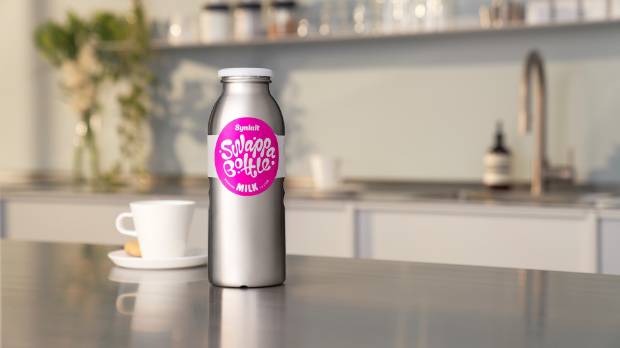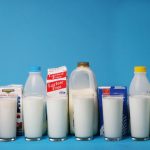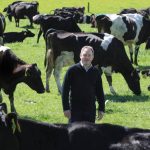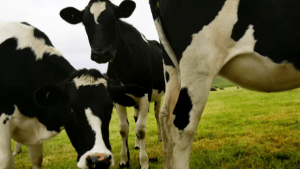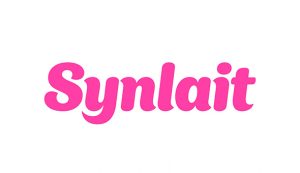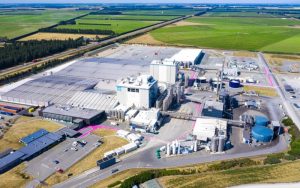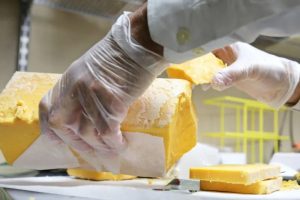
The 1.5 litre bottle of homogenised milk will be on sale from Tuesday for $15.29 at New World supermarkets in Ilam and Fendalton in Christchurch. The initial cost includes $9.99 for the Synlait Swappa Bottle and $5.29 for the milk. Subsequent purchases when customers return their bottle to store will cost just $5.29 for the milk.
Synlait is branching out from being a manufacturer of products for other companies to developing its own consumer brands after acquiring Dairyworks in 2019, which supplies supermarkets with Dairyworks, Rolling Meadow and Alpine products. Its move into Synlait-branded milk comes after several years’ experience supplying Foodstuffs South Island with fresh milk and cream under its Pams and Value labels.
The supermarket group will monitor sales at the two pilot stores and should have a good understanding of consumer uptake within two to four weeks, said Synlait director of sustainability and brand, Hamish Reid.
“If we hit the numbers that they want us to hit, then they will start rapidly rolling us out to other stores,” Reid said. “It would be brilliant if we got national coverage within a few months.”
Reid, who joined Synlait in 2017 with a background in consumer food marketing, said Synlait has “oodles” of milk available from its 280 farmer suppliers to support a national roll-out.
Private label brands like Pams account for some 70 per cent of fresh milk sales nationally, with the remaining 30 per cent taken by Fonterra’s Anchor brand and Goodman Fielder’s Meadow Fresh. Smaller brands like Lewis Road make up only about 2 to 3 per cent of the total market.
Synlait would like to carve out a “double-digit” share of the branded milk market, Reid said.
The cost of taking back the swappa bottles for washing and refilling precludes Synlait from competing with the more price sensitive private-label market, he said.
Still, even a reasonably modest market share would remove a lot of plastic bottles from the market, he said.
“New Zealanders have been telling us for years that they are deeply concerned about plastic waste, but in milk there haven’t been many options,” he said. “Synlait Swappa Bottle is a step in the journey towards eliminating plastic waste.”
The company has been working on the sustainability project for several years and considered other materials such as glass, recycled plastic and plant-based plastic but “pretty quickly wrote them off”, Reid said.
“Milk in glass bottles is actually a bit of an environmental crime site,” he said. “We eliminated that really from day one.”
Glass was heavy to transport, and most recycled glass was downcycled into lower value products like roads and footpaths with only a few niche companies taking glass bottles back to clean and refill them, he said. Milk in glass bottles also deteriorated quickly due to its exposure to light, he said.
“It’s a bit of a nostalgic kind of throwback really,” he said. “It’s something that people will always hark back to, those golden days when we used to get milk delivered to our doorstep. The reality was it was really poor quality.”
The centralisation of milk production means milk now has to travel a long way, and shipping heavy glass around the country increased the product’s carbon footprint, he said.
Synlait wanted to do something “really radically different” from plastic, in line with its purpose of ‘doing milk differently for a healthier world’, he said.
Reid said he hoped the swappa bottles could be used hundreds of times, and testing of prototypes at home showed they were “really robust”.
If consumers took to milk swappa bottles, the company planned to roll out other products in similar containers.
The model has taken off overseas, pioneered by TerraCycle’s Loop initiative which partners with big global companies like Nestle, Unilever and Procter & Gamble to offer re-usable containers.
Synlait hoped other companies would also embrace the concept, allowing costs for infrastructure like reverse vending machines in stores to be shared, Reid said.
Establishing the company’s credentials as a domestic brand will help Synlait expand into selling its branded products overseas.
“We think there are lots of opportunities for our business and other businesses in New Zealand to own more of the value chain, to take a bigger slice of it rather than giving too much of it away in commodity prices for businesses abroad to realise the full benefit from,” Reid said.
“We could be producing way less food with a lower environmental impact and we could be selling it for a lot more if we are smarter and that’s what Synlait is really trying to pioneer.”
